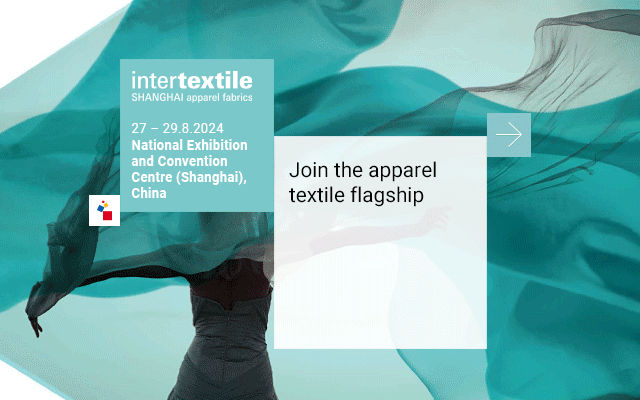Sustainability in fashion is a cause more shoppers are becoming aware of. However, the unavoidable high price point associated with sustainable brands often makes it a niche product available to some, rather than all. Some brands are working on tackling the divide.
Sustainability has stepped into the spotlight as the trend of this year's transformative fashion season. As things continue to shift within the industry, morphing into a new normal, the topic remains at the forefront of the conversation. Yet despite everything sustainability has tackled, there is one major matter that has continuously hindered its growth—affordability. As brands aim to reconstruct environmental and humanitarian practices, making them fair and sustainable, pricing of clothing inevitably goes up. For this reason, sustainable brands often end up becoming trapped in a niche world, rather than an opportunity for everyone to make a positive impact on the future of fashion.
The disconnect between sustainable fashion and its price point, ironically, may be rooted in the very thing that is most important to the public when the topic is discussed. Though consumers care about environmental concerns, it tends to resonate as more of an abstract issue for them. Rather, labour practices and supply chain affairs appear to be a more tangible concern, according to a recent Vogue Business article published on the issue. But paying staff fairly, establishing safe working conditions across the supply chain, and sourcing ethical and sustainable materials doesn’t come at a low cost. The unavoidable makeup in costs is consequently represented in a piece's final price tag.
Morning Consult/IBM conducted a new poll of 4,000 consumers across four European countries, including the UK, Germany, Italy, and Spain in which they inquired about what is most important to them under the umbrella of “textile sustainability”. Number one on the list is fair conditions and wages for workers, a humanitarian issue the greater public can relate to. Falling behind this concern are more environmental interests including the responsible use of raw materials; circular economy practices; low use of chemicals; and the protection of biodiversity.
Such economic tension consequently leads to the dichotomy of continuous growth of fast fashion versus the subsequent burdensome concerns raised for sustainable brands.
A seemingly simple poll on the price of a white tee (basic vs sustainably made) recently revealed a surprising amount of information regarding a [European] consumer’s habits when purchasing sustainably.
The data shows that though consumers uphold sustainable practices, they have yet to incorporate them into their shopping practices in any impactful way. Out of the 1,000 adults surveyed in the UK, Germany, Italy and Spain, Germans appeared to be the most comfortable and content with spending more on sustainable clothing. By contrast, Brits revealed to be the least willing to invest in the higher priced sustainable pieces.
The practices may suggest that consumers lack an understanding of all the extra economic challenges a brand faces when choosing to be sustainable. The work of educating the public on the vast meaning of sustainability therefore may lie in the responsibility of the brands. “There’s a real need to think about how you surface that information at the point of engagement with the brand, says Luq Niazi, global managing director of consumer industries at IBM. Yet some brands, like Aligne, have already begun the work.
Launching amid a pandemic is a bold move, but to CEO and founder, Dalbir Baines, the decision was one that reveals a glimpse into her own work ethic. “We can only power through,” Baines said to Ella Alexander for her recent Harper’s Bazaar interview. “We just need to make careful, considered decisions and try to embrace the reactive nature of the current climate.”
“Creating premium, quality clothing is essential to our brand, but we’ll never be able to make change if we're too niche or unattainable with our price point,” Bains said. “We will always offer collections that are accessible and relevant to a wide range of people. Looking ahead, I anticipate that the industry will be able to move sustainably without a huge impact on cost, because - hopefully - there will be huge economies of scale behind it. From here, things can only get better.”
Aligne offers luxury style, premium made clothing at a more affordable price point than the average sustainable brand. In order to keep prices lower than the competition, Baines has worked with her connections, as well as her understanding of the fashion industry, gained from nearly two decades of a career as a fashion buyer and product developer. Baines exclusively has chosen to work with factories that focus on sustainability across all their partnerships, in an effort to achieve a good price on eco-friendly fabrics. Additionally, the brand works digitally with international factories and creates nearly half its collection in Europe, where it is based, in order to reduce their carbon footprint.
At its earliest stage, the brand already boasts of a minimum of 50 per cent sustainability in every product and 100 per cent sustainability in nearly half of its first collection. The brand's goal is to reach full product sustainability, on every level, by 2022. Such ambitions continue to push the boundaries towards the common goal of creating a fully sustainable fashion industry. The hope is that it will also cause a domino effect for like-minded brands. The intentions, moving forward, must be based in not only educating the consumer, but also working with them to make sustainable garments affordable for all.
This article has not been edited by Fibre2Fashion staff and is re-published with permission from synzenbe.com















Comments